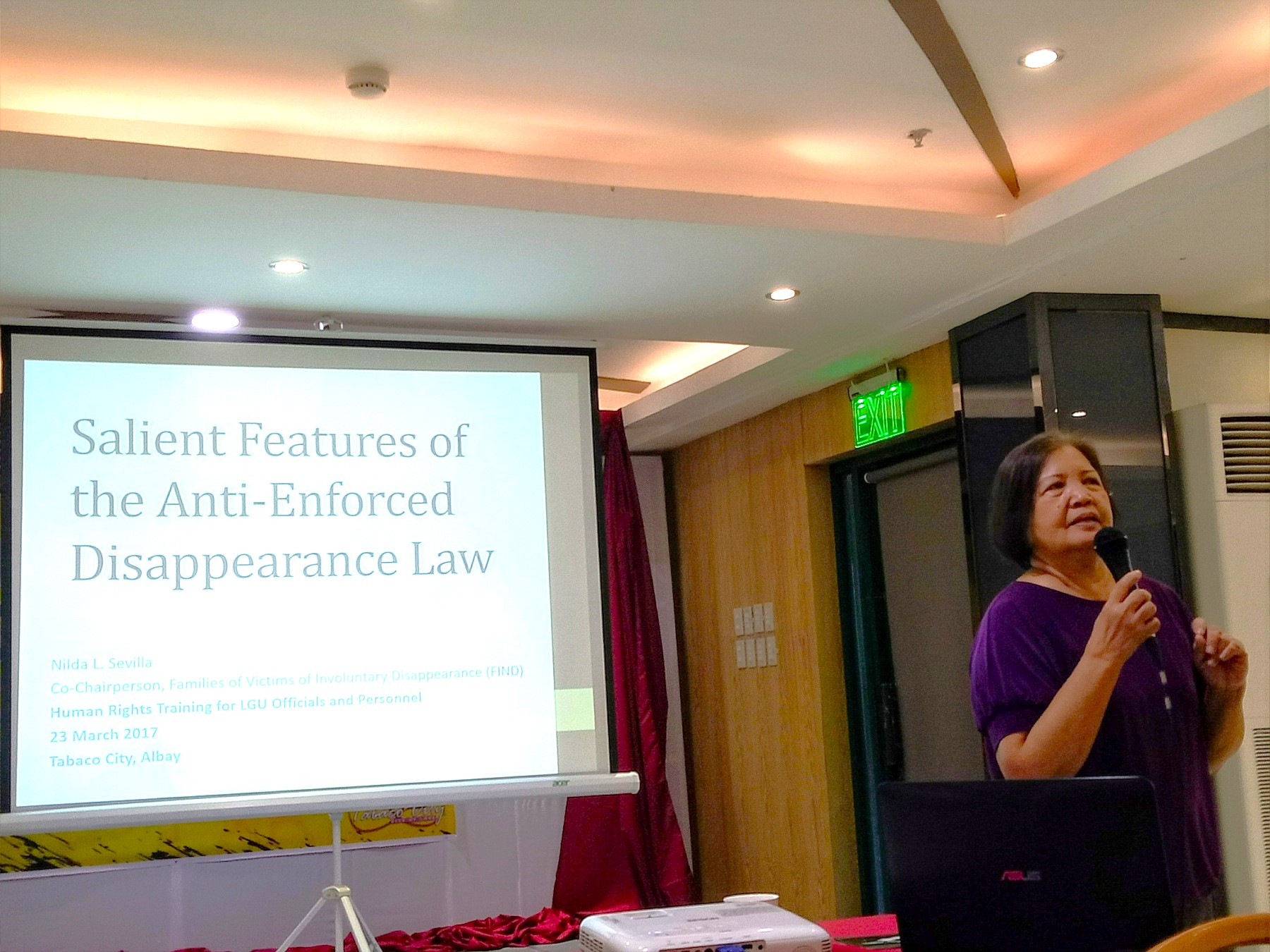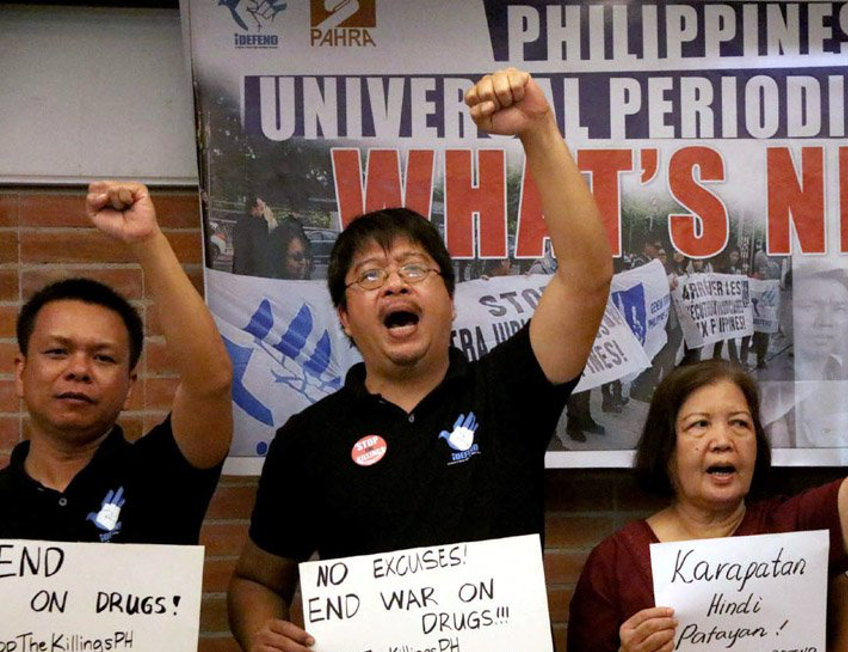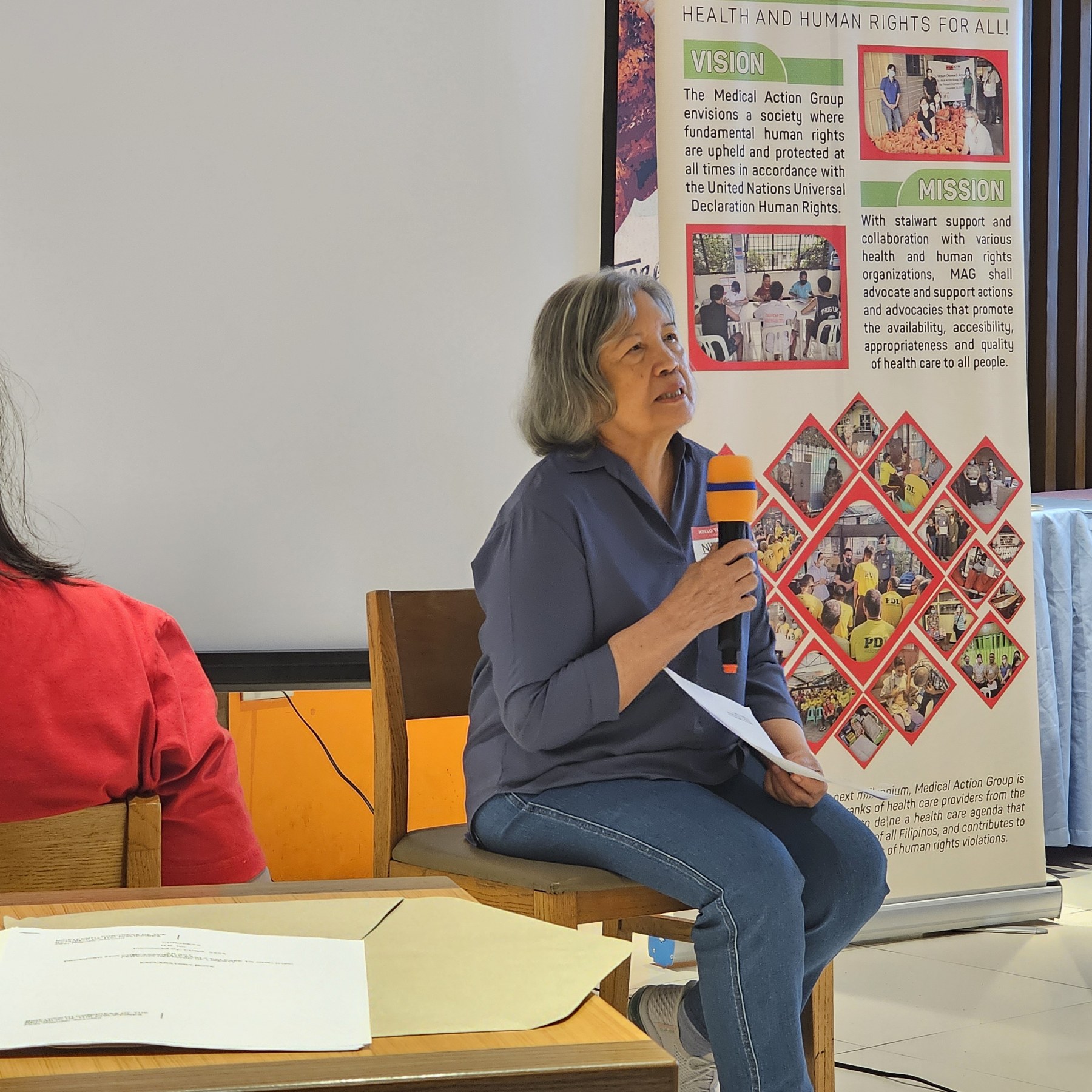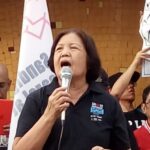Minds of the Movement
An ICNC blog on the people and power of civil resistance
by Nilda SevillaOctober 15, 2024
This article is part of the REACT mini-series entitled, "Voices of Resilience: Women Defending Human Rights in Southeast Asia", guest-edited by Maneesh Pradhan and powered by ActionAid Denmark. Additional posts will be released in the coming weeks. Check back on our blog homepage!
Sign up for the October 16, 2024 launch webinar which will feature Voices of Resilience series authors (all registrants will receive a recording).
I was eight when I overheard Dad persuading Mama to employ the daughter of an impoverished client as household help. She would work without pay, in exchange for her father’s lawyer fees. We didn’t need household help, but Mama agreed when Dad explained it would mean “one less mouth to feed” for his client’s family. She was hired, with salary.
I later understood the disturbing gap between social classes when I pursued a progressive education. But my learning wasn’t confined to the classroom. Conversations with one of my elder brothers, my constant companion on our commutes to university (1964-1968), enriched my education, from which emerged a strong desire for equality, truth and justice in my country. After passing the bar, my brother became a full-time labor and human rights lawyer during martial law. He was disappeared in 1977. Over two decades later, my youngest brother, a revolutionary labor leader, was assassinated. Justice for them remains elusive.
The violence committed against my brothers and thousands of other activists played a significant role in shaping my path as a human rights defender (HRD). Despite the seemingly insurmountable odds faced by a woman HRD, I chose to take the risk of fighting for a society and a future befitting my children and all children, including those yet unborn.
My activism, spanning more than five decades, began in the 1970s during the Ferdinand Marcos Sr. regime. It has continued through seven successive administrations, including the current one under Ferdinand Marcos Jr., a pseudo-democrat who remains tightlipped about the gross human rights violations committed during his father’s presidency.

Presenting on the salient provisions of the Anti-Enforced Disappearance law at the Human Rights Training for local officials and personnel. FIND documentation.
One of the riskiest challenges I faced as an HRD was surviving the repressive martial law as a political science teacher in college (1971-1988). Academic freedom was severely curtailed. However, in my determination to preserve democratic principles, I chose to teach the truth about martial law: the President’s ulterior motive in declaring it, his disregard for the rule of law, the massive human rights violations, the plunder amid economic decline, and the growing resistance movement. These were contrary to the falsehoods schools were instructed to teach and which government-controlled media publicized. I taught the lessons I conceived to my students, some of whom were hawkish military intelligence agents assigned to infiltrate academia. Years later, one of these students met a colleague of mine by chance. He proudly requested her to inform me that he wasn’t in the national security service anymore. He remembered how I used to criticize the armed forces for blindly protecting the enforcers of martial law rather than serving and defending the people.
How I avoided possible arrest and prosecution by association on account of my brothers’ radical activism is no mystery. As an educator exercising academic freedom, I advocated and practiced peaceful exchange of ideas. I allowed my students, including those in the police and security forces, who vigorously defended Marcos Sr.’s authoritarianism, to freely speak up and express their dissent. I would gently but firmly counter their biased and unfounded arguments. For this, I earned their respect.

Serving as panelist at a post-Universal Periodic Review press conference condemning the brutal war on drugs of the Duterte administration, May 18, 2017. Later that day, Duterte threatened to behead human rights defenders critical of his war on drugs. FIND documentation.
However, there was one military intelligence agent, not enrolled in my class, who would doggedly in eerie silence stand in the middle of the classroom door listening to my lecture but refusing to sit in when invited. I was so stressed by the brazen intrusion that my health as a pregnant woman at the time suffered greatly. To save my baby, I had to take maternity leave for the remainder of my pregnancy. I saved my precious baby and maintained my security but lost eight months of meaningful teaching and human rights advocacy.
As the faculty union president during the Marcos Sr. dictatorship, I became actively involved in the movement for educational reforms. The college management consequently tried to criminalize our union’s lawful activism by filing trumped-up charges against me and other union leaders. Unfazed by the attempted judicial harassment, I vigorously pursued the illegal dismissal cases of over 30 unionists. I religiously testified on behalf of the complainants who for valid reasons could not attend the hearings. My perseverance and courage paid off as management eventually paid damages to the complainants. This legal victory made my male colleagues realize that their doubts about my leadership—based solely on my being a woman in my late 30s navigating the traditionally male-dominated arena of trade unionism—were completely unfounded.
My struggle against human rights violations and repression went beyond the ouster of the dictator and the assumption of the presidency (1986-1992) by Corazon Aquino, regarded as a “democracy icon”, following the four-day peaceful People Power uprising. While some democratic space was gained, when the peace talks with rebels collapsed, the president declared an all-out war on insurgents. This was a green light for security forces—the same establishment that entrenched the dictatorship for 14 years—to unleash its fury not only on combatants but also on lawful political dissenters. The order of battle, which failed to distinguish between armed rebels and legitimate activists/HRDs, hung like a sword of Damocles over our heads. This threat to the safety and security of HRDs has been constant but was pronounced in the immediately preceding Rodrigo Duterte administration (2016-2022) which demonized HRDs. This vilification stemmed from Duterte’s distortion of human rights concepts and the role of HRDs who defended the right to life of victims of his brutal war on drugs. Moreover, his misogynist remarks slurred women HRDs, putting their safety at higher risk.

Helping refine the Compassionate Early Release bill drafted by the Medical Action Group, September 27, 2024. FIND documentation.
Poverty and inequality continue to spawn human rights violations. HRDs active in the movement for enduring transformative change become victims of red-tagging and other unfounded derogatory labeling, judicial harassment, arbitrary arrest and detention, torture, enforced disappearance and/or summary execution.
As Co-chairperson of the Families of Victims of Involuntary Disappearance (FIND) from 2002 to 2022, one of my primary commitments was to help our members, 65% of whom are women, transform from victim-survivors to active HRDs. Women generally bear the brunt of enforced disappearance as a huge majority of the disappeared are male, many of whom are the family breadwinners. Inevitably, wives and mothers are suddenly charged with the responsibility of eking out a living and providing for the basic needs of the family while searching for their missing loved ones.
I may not have directly experienced the collateral economic harm inflicted by enforced disappearance on women victim-survivors, but I witnessed and felt their pain and anxiety—especially my mother’s—over the uncertain fate of our disappeared loved ones. This shared distress strengthened my resolve to help victims find truth and justice, obtain reparation, and work toward ending enforced disappearance.
Hence, when I was a legislative staff chief in the House of Representatives (1992-2010), I collaborated closely with my principal and other HRDs to successfully enact landmark human rights legislation, particularly the law against enforced disappearance. I was actively involved in drafting the legislation, in Congressional public hearings and technical working group sessions, in reconciling differences between the Senate and House versions of the bill, and in drafting the law's Implementing Rules and Regulations. Currently I am involved in the monitoring of its implementation by the House Committees on Human Rights and Justice, the Commission on Human Rights, and organizations like FIND and other human rights groups.
Notwithstanding intimidation and reprisal, I have never wavered in my commitment to the struggle for the causes championed by our beloved desaparecidos and other patriots. At 77, I proudly remain a staunch human rights defender.

Nilda Sevilla
Nilda Sevilla is a lifelong activist steadfastly defending multisectoral rights especially the right of all persons not to be disappeared. Based in the Philippines, she was entrusted with the role of Co-chairperson of the Families of Victims of Involuntary Disappearance (FIND) for two decades.
Read More